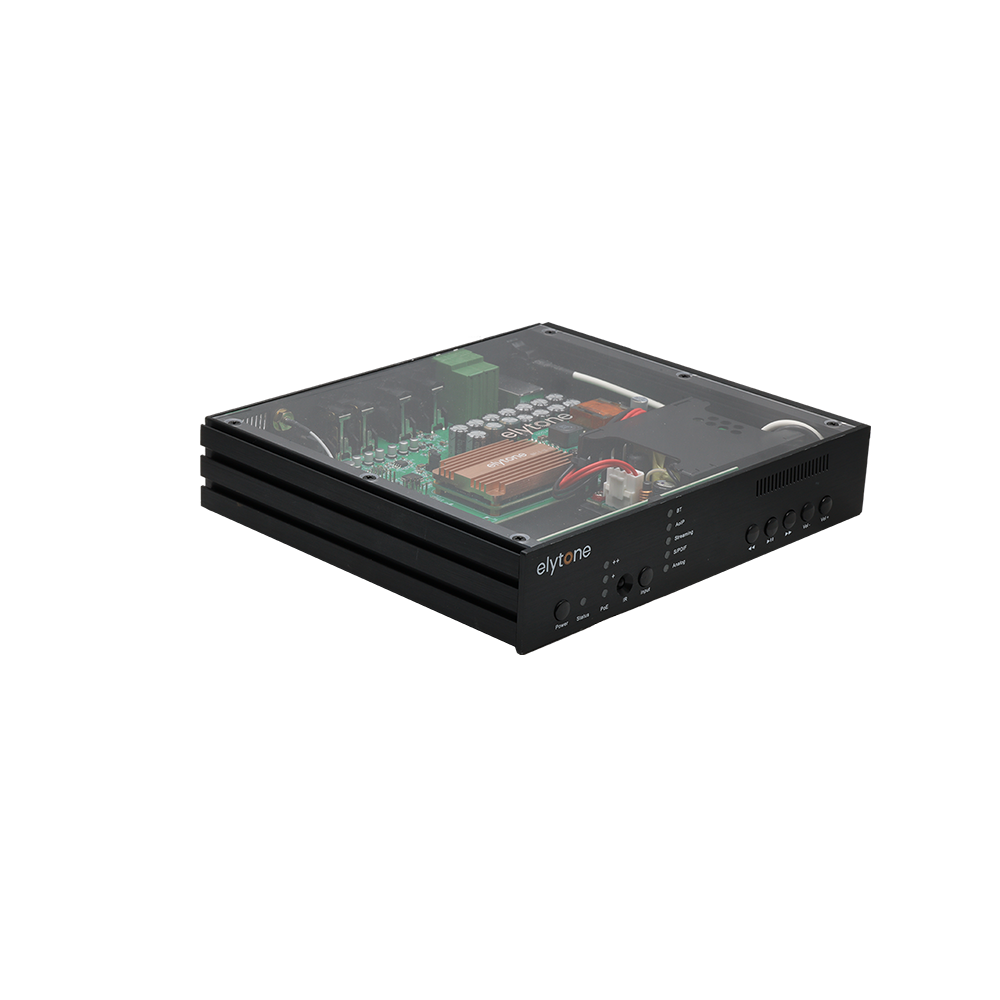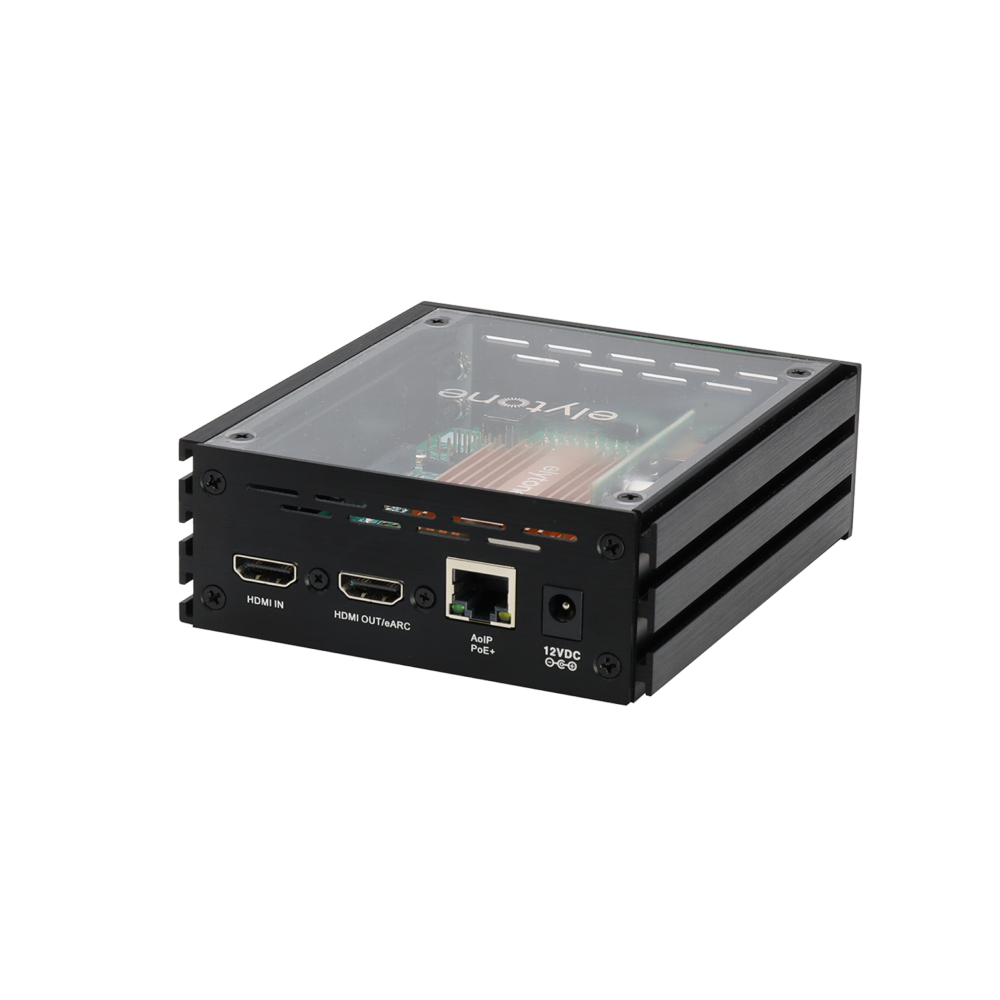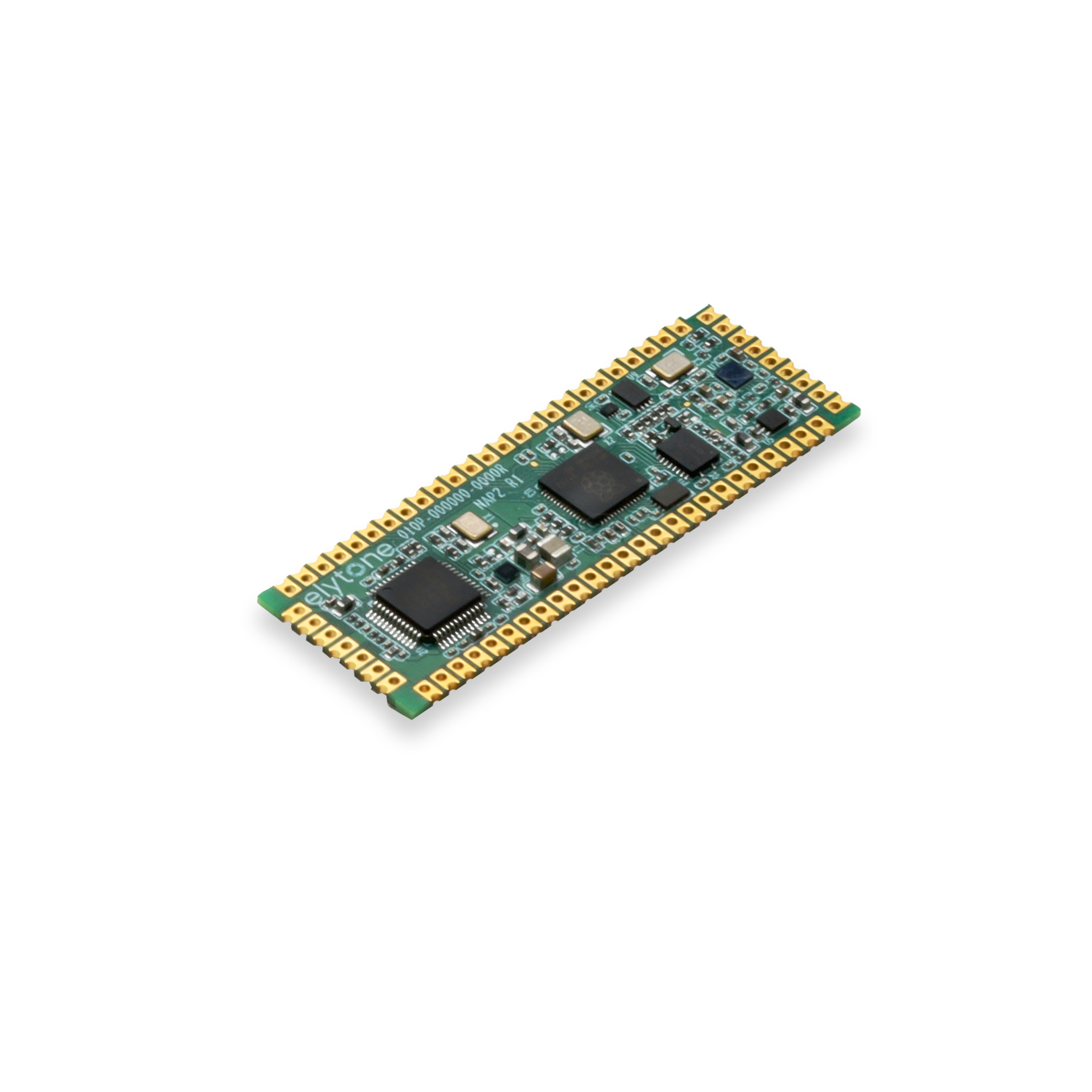Networked Audio Processing
The core of enabling IP audio networks, our networked processors with advanced computational processing, DSP, memory, and software can act as the engine of powerful audio products for the most demanding applications.
Networked Audio Processor 1 (NAP1)
NAP1 is a breakthrough in miniaturization and audio performance: a comprehensive audio system driven by a powerful multi-core application processor with on board memory, and power circuitry - all in a module about the size of a business card. NAP1 is designed to integrate networking, processing, and audio functions to enable a wide range of applications, from current products to totally new concepts.
EVALUATION KIT AVAILABLE
A complete evaluation kit (EVK) is available for fast prototyping and streamlined product development

Potential Applications



“This module dramatically simplifies and shortens the traditional process of integrating processing, memory, DSP, and audio components and setting up the software stack for audio applications and DSP. Customers can spend time on innovation and their differentiators rather than setting up the processing core of their products.”
Albert Yong
Vice President of Audio/OEM at Elytone
Specs
Processing, Memory & Networking
- Analog Devices ADSP-SC598 System on Chip
- Dual SHARC+ Cores up to 1 GHz
- ARM A55 Core @ 1 GHz
- DDR3 Memory (8 Gbit)
- SPI Flash Quad (SPI2) Memory (1 Gbit)
- Gigabit Ethernet PHY
GPIO & Other Interfaces
- Up to 64 ch I2S/TDM + 2 x S/PDIF Receive/Transmit
- 3 x UART, 1 x I2C, 1 x SPI, 1 x QSPI, 2 x PWM
- 1 x ePPI (supporting (TFT) LCD panels)
- 1 x USB 2.0 HS OTG Controller (Requires EXT. PHY)
- 1 x Debug Interface (JTAG)
Audio Formats
- Dolby Atmos, DTS/DTS:X (including IMAX Enhanced), MPEG-H, MPEG-4 AAC, Sony 360RA, Auro 3D
- Audio-over-IP: Dante DEP (Up to 16X16), AES67 (Up to 64X64)
- USB Audio
Extended Capabilities
- Telemetry and Remote Control via Dante Director
- AES70
- Failsafe FW Update Mechanism
- RESTful API for device telemetry and control


AMP-140C4 Evaluation Kit
A complete evaluation kit (EVK) is available for fast prototyping and development. It includes a durable housing, power supply, product module, and I/O ports—providing a ready-to-use platform for easy setup, testing, and performance validation.

Specs
Modules Inside
- Controller – Networked Audio Processor 1 (Using Digital serial bus and up to 16-ch, NAP1-8)
- PD module: POE-PD90
Audio Input
- Dante audio 4 ch
- Line input: 2 channel RCA
- Streaming: Airplay 2, Spotify Connect, Tidal Connect
- S/PDIF input
Audio Output
- 4 channel speaker output
- Line output: 4 channel RCA
- Dante audio output via Ethernet
- S/PDIF output
- USB audio 2 ch & 12 ch
Front Panel
- RGB LED: Status, PoE, Wireless, Source
- Button: Power, Volume Up, Volume Down, Next Track, Previous Track, Play / Pause (Pair)
- Expandability: Headphone, LCD display
Request Evaluation Kit
VID-1X1 Evaluation Kit
A complete evaluation kit (EVK) is available for fast prototyping and development. It includes a durable housing, power supply, product module, and I/O ports—providing a ready-to-use platform for easy setup, testing, and performance validation.

Specs
Additional Modules
- Networked Audio Processor 1 (NAP1) - included
- POE-PD15 module or external DC 12V supply - optional
Audio Input
- PCM/Encoded audio (via HDMI input)
- ARC/eARC audio (via HDMI output)
Audio Output
- PCM decoded audio (via HDMI output)
- AoIP encoded multichannel audio (up to 16ch) via Ethernet
- 2ch headphone output
Extended Capabilities
- 8K HDMI video I/O with OSD overlay
- Web-GUI system configuration
Request Evaluation Kit
A²B Development Products

Cases
Dante Series - Dante Transforms Audio and Video Connectivity
Traditional audio systems use bulky cables for single signals, becoming expensive and noisy over long distances. The Dante series transforms this by using network technology, enabling multiple high-quality audio and video channels via slim ethernet cables, reducing complexity and costs.
| Product | AMP-15C2-POE | AMP-30C2-POE | AMP-90C2-POE |
|---|---|---|---|
| Power Source | PoE (IEEE 802.3af), 15W | PoE+ (IEEE 802.3at), 30W | PoE++ (IEEE 802.3bt), 90W |
| Continuous Output | 2 x 5W @ 4Ω (THD+N 1%) | 2 x 12W @ 4Ω (THD+N 1%) | 2 x 35W @ 4Ω (THD+N 1%) |
| Peak Output | 2 x 48W @ 4Ω (THD+N 1%), 15ms | 2 x 48W @ 4Ω (THD+N 1%), 100ms | 2 x 48W @ 4Ω (THD+N 1%), 250ms |
| Signal-to-Noise Ratio | > 100 dB (A-weighted) | > 105 dB (A-weighted) | > 105 dB (A-weighted) |
| Distortion (THD+N) | < 0.1% @ 1W into 4Ω | < 0.02% @ 1W into 4Ω | < 0.02% @ 1W into 4Ω |












